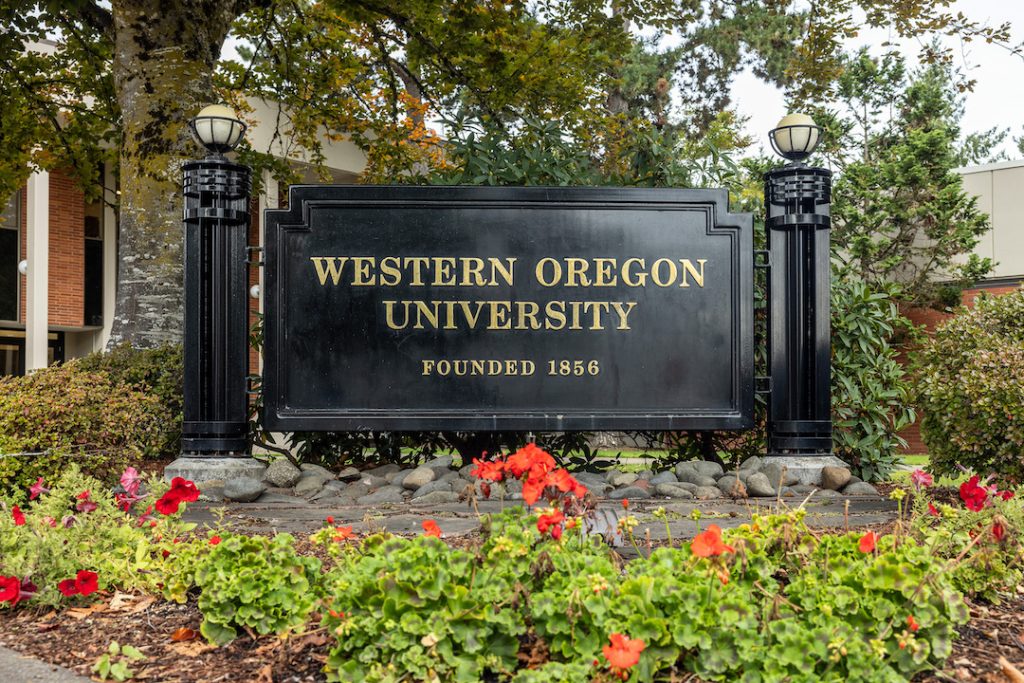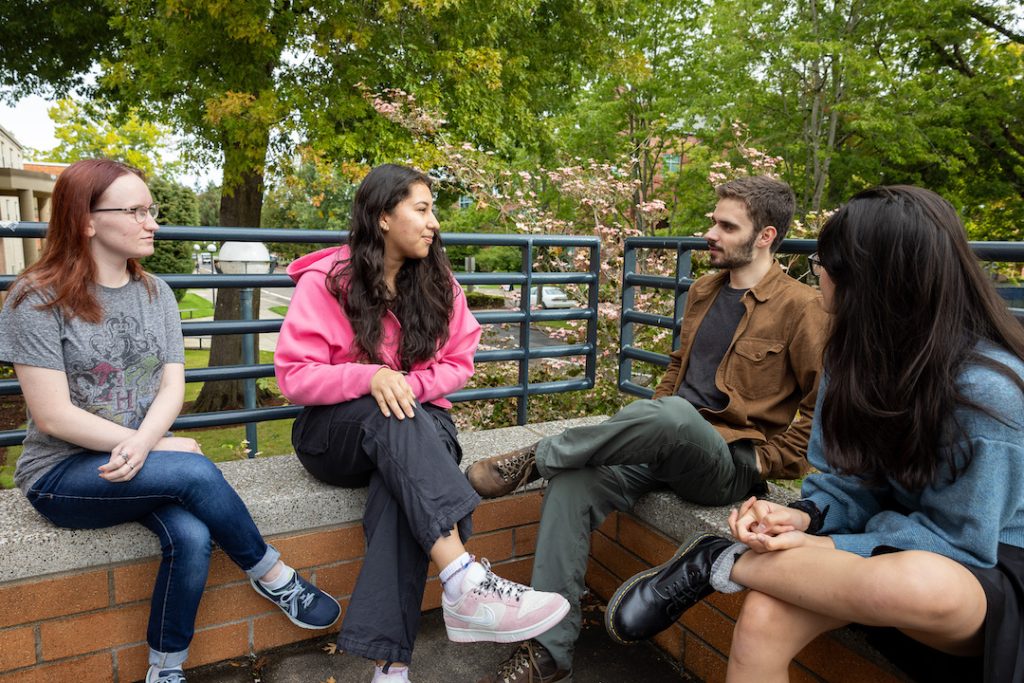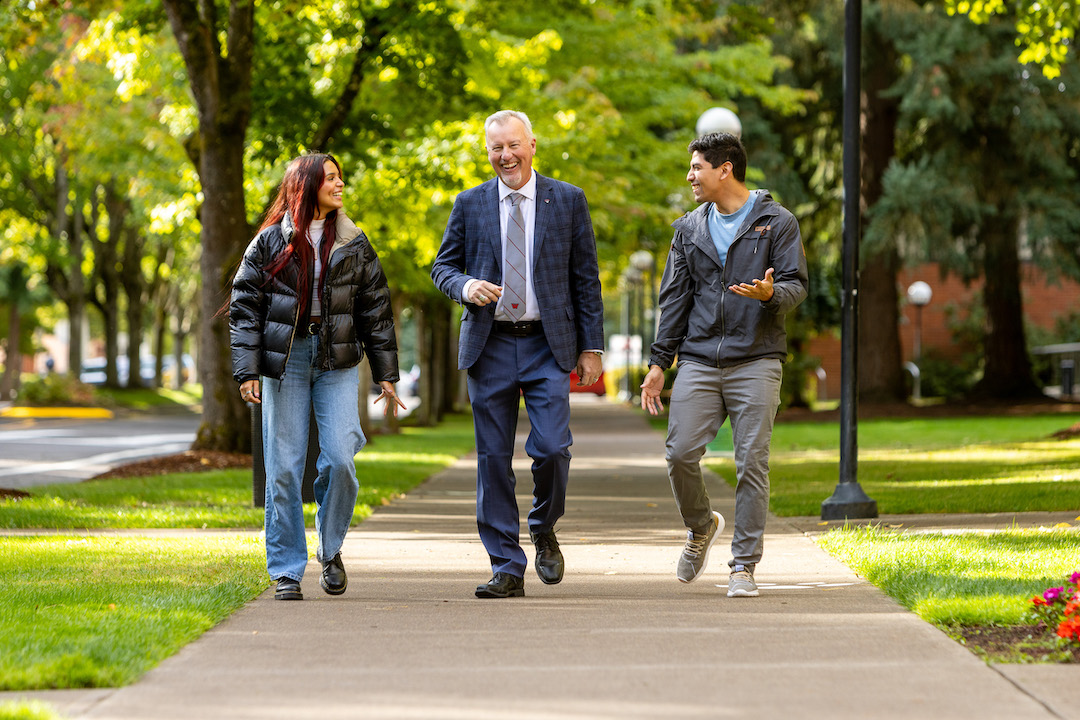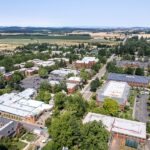BrandStory – Western Oregon University tailors its resources and services to the diverse needs of each student.
With a student population that is 24% Latiné, Western Oregon University (Western) moves steadily closer to becoming a Hispanic-Serving Institution (HSI). Western’s statistics reflect its commitment to serving each individual through wraparound services, open dialogue, and its secret sauce: a welcoming community that values difference and vulnerability.
The university’s inclusivity might also explain why nearly half of Western’s student body consists of first-generation college students. As a first-generation student himself, University President Dr. Jesse Peters knows how foreign a college campus can feel.
“Universities are seen as sources of power, so to walk into that space and feel like you’re not of that world can make you feel uncertain,” he explains. “There are a lot of us who feel like we don’t know as much or feel like the ways we communicate are not correct, or that our accents and grammatical constructs are not respected. Often, they’re not, so that feeling of ‘less than’ is reinforced as soon as you hit the door. We want to make sure students overcome those feelings and know their experiences are valuable.”
Western starts by checking its own assumptions of what students know or need as they begin engaging with the university. Its wraparound services meet students at every step of the way, starting with admissions and enrollment, and continuing with quality advising and convenient class schedules.
Then comes housing, student affairs and extracurriculars—the structures that support social activities, emotional growth, and community building. Counseling, health services and extensive disability support play critical roles too, and as graduation approaches, internship opportunities and career services gain in importance.
“You can’t just say, ‘Well, our website is in two languages, everything’s good now,’” adds Dr. Peters, who is a member of Excelencia in Education’s network of Presidents for Latino Student Success. “It starts with culturally sensitive pedagogical training and lots of professional development across campus to help employees be more inclusive.”

The school offers professional development opportunities every term, such as one centered on accessibility and another about how to have difficult conversations in the workplace and classroom. Faculty members can also seek support to participate in conferences and professional development opportunities through set aside financial resources on an annual basis.
“There needs to be genuine dialogue. We’re not here to dictate what students need,” Dr. Peters says. “We have to ask them and make opportunities for them to tell us what they need to be successful.”
Western’s emphasis on inclusive, informed dialogue extends to its HSI Summits, which allow the broader community to learn from one another, evolve and strengthen Hispanic Serving Institutions. Its second edition invited K-12 leaders, legislators, college representatives, DEI experts and students to collaborate on what it means to be an effective HSI. Due to the success of that meeting, Western plans to continue hosting the multi-disciplinary event.
Another arena for dialogue is the campus’s Freedom Center where students, primarily students of color, can gather and inform the university of their needs. Additionally, this year Western will have open dialogue sessions for students with Dr. Peters, Provost Jose Coll, Vice President of Student Affairs Tina Fuchs, and Executive Director of Diversity, Equity and Inclusion Dominique Vargas. Though the Freedom Center is relatively new on campus, it is run by students and is part of learning how to better support them. As Dr. Peters says, “We haven’t gotten it all figured out, but we are committed to constantly learning and doing better for the students of Western.”
Western’s ongoing external equity assessment presents yet another opportunity to listen and improve the ways the university supports student success. The four-phase assessment evaluates the university’s climate, as well as student-focused and employee-focused policies and procedures. According to Dr. Peters, the equity assessment is itself an act of vulnerability that changes the narrative of university as authority.
“It’s not always a pretty endeavor,” he admits. “A consultant won’t sit around and say you’re doing everything perfectly. But I’m not afraid to tell folks that we’re learning, and let’s figure it out together. The only way we can really start to improve is when we engage with experiences other than our own and respond in genuine ways.”
Western organically found its way down the HSI path long ago thanks, Dr. Peters believes, to the faculty and staff’s willingness to show vulnerability and engage as equals.
“The people here come to their work in a very open and inclusive way, and I believe that students and their families feel that when they walk on campus. It’s hard to quantify,” he elaborates. “Gone is the gatekeeping approach. Everyone should be here. We’re here to support not exclude, and I think students feel that.”

Western’s Executive Director of DEI Dominique Vargas agrees: “Faculty often share some of their experiences as first-generation, low-income, the only person of color in their college classrooms, etc., and this sharing encourages trust-building with students.” She adds that this openness often allows students and faculty to build greater connections and create
better learning environments.,”
Beyond those daily, invaluable interactions, Western maintains dozens of concrete programs and protocols that prioritize diversity.
Its Diversity Scholars program, which grew by 86% between 2020 and 2022, provides scholarships to students of all backgrounds who are committed to diversity and opt to take dedicated courses. The school’s Bilingual Teacher-Scholars program supports students planning to become bilingual teachers in Oregon by offering scholarship funds for professional development, a language certificate upon graduation and hiring preferences.
The list continues with the arrival of an Ethnic Studies major and minor, and the recruitment of an Assistant Director of Diversity, Equity and Inclusion, and Hispanic Serving Institution Initiatives.
“We don’t want the HSI status just to say we have it. We’re trying to get the status by learning how to support students in better ways,” Dr. Peters explains. “Someone told me years ago, ‘You can be numerically diverse, but are you transformationally diverse?’ That stuck with me. We’re in a state of transformation because we’re engaging with difference all the time.”
For Western Oregon University, the status of Hispanic Serving Institution is a barometer for the level of support, care and consideration provided to all of its students from all backgrounds.
“If we are creating a welcoming and supportive environment to better support one segment of the population, that benefits all students,” he concludes. “Interacting across experiences makes the whole institution stronger, and we are already noticing positive changes in our overall fall enrollment.”
Brand stories are paid content articles that allow Oregon Business advertisers to share news about their organizations and engage with readers on business and public policy issues. The stories are produced in house by the Oregon Business marketing department. For more information, contact associate publisher Courtney Kutzman.




